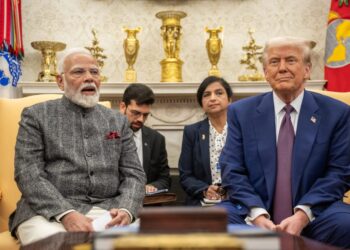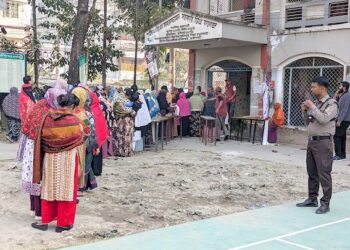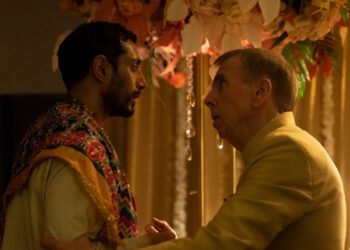Father Stan Swamy’s murder at the hands of the present regime is not just a loss to the Adivasi cause in India, but also to movements for the rights of indigenous people everywhere in the world. In murdering Stan, the Indian state has betrayed its settler-colonial ethos of greed, violence and oppression of defenceless populations.
Madhumita Dutta
When in the early ‘70s Stan Swamy, a young Jesuit priest, first came as a teacher to Lupunghutu, an Adivasi village near Chaibasa in West Singbhum district of then state of Bihar, he witnessed an incident that profoundly influenced him. Stan visited one of his pupil’s village. There he saw an Adivasi man up on a mango tree plucking ripe mangoes. As Stan watched standing under the tree, the Adivasi man plucked only some of the ripened mangoes and then climbed down without plucking the rest. Stan was surprised to see this. He asked the man as he came down the tree as to why he didn’t pluck all the ripened mangoes. The man replied that he took what he needed, the rest was for the birds, the squirrels, the worms and all other creatures to eat. This simple reply opened a new world to Stan. It conveyed an ethical and moral way of living – a sense of harmony with other creatures who share this earth and its resources to survive – a non-human centric egalitarian worldview. Stan realized he had much to learn from the Adivasis.
Stan was an ordinary Jesuit priest who became an extraordinary human being as he embraced the Adivasi way of being or as some may say he recognized the “Adivasi genius”. He also saw what was happening to the Adivasi land, forests, and water. Governments, mining companies, local landlords were systematically and violently displacing the Adivasis from their lands and forest, forcing them to migrate or becoming laborers in the mines (often on their own land) across the mineral rich state of Jharkhand. By invoking colonial era ‘law of eminent domain’, the state was systematically alienating Adivasi land, enriching mining companies and dispossessing Adivasi people from their homes. A religious man, the Constitution of India became Stan’s bible. He embraced it to educate and agitate the excess of the state and corporations. In his own words, Stan wrote: “Over the last two decades, I have identified myself with the Adivasi people and their struggle for a life of dignity and self-respect. As a writer, I have tried to analyse the different issues they face. In this process, I have clearly expressed my dissent over several policies and laws enacted by the government in the light of the Indian constitution. I have questioned the validity, legality and justness of several steps taken by the government and the ruling class.”
“Over the last two decades, I have identified myself with the Adivasi people and their struggle for a life of dignity and self-respect.” – Fr Stan
Stan was inspired by liberation theology and the life statements of many Latin American priests and nuns, including Bishop Oscar Romero of El Salvador who spoke up against the social injustices and violence of the military government on the local population.. This led to his assassination in 1980 ordered by the right-wing political party ARENA as established by the UN instituted Truth Commission for El Salvador. Stan was influenced by people like Anthony Murmu, an Adivasi leader and former Jesuit priest, who organized his people against the local landlords and money lenders who were looting the Adivasi people. Murmu was brutally murdered along with 14 other Santhals in 1985 by landlords over issues related to fishing rights. The brutal incident is known as the Banjhi massacre. Another inspiration of Stan was the Jesuit priest AT Thomas who was working in Hazaribagh area amongst the Adivasis and was brutally murdered in 1997. And now Stan has been murdered by the State. For what? For dissenting, for questioning the government for non-implementation of the provisions of the Indian Constitution to protect the Adivasi land; for ignoring Panchayats (Extension to Scheduled Areas) Act, 1996 that for the first time recognized the social and cultural self-governance system of the Adivasis; for ignoring Samatha Judgment of 1997 that provided safeguards to Adivasi people over the extraction of minerals found on their land.
In a searing report titled ‘Deprived of rights over natural resources, improvised Adivasis get prison: a study of undertrials in Jharkhand’ published in 2015, Stan and his research team from Bagaicha, a social research organization founded by Stan near Ranchi, showed how a disproportionately large number of Adivasi men and women aged between 18-40 years were languishing in various prisons across Jharkhand as undertrials without bail. All of them were incarcerated for allegedly being Maoists without any evidence or based on fabricated charges. In fact, the report found that 97% of those incarcerated had no such connections. The report notes many of them held in prisons for opposing the violation of their constitutional rights. Calling it a “gross misuse of the criminal justice system”, the report highlighted the cultural and systemic violence by the so called ‘mainstream’ that creates “endemic poverty, massive illiteracy, hunger and malnourishment, rampant corruption, continued oppression and exploitation of the less privileged by the powerful.” Besides, everyday mundane atrocities of the state, the report provides a critical analysis of the “ideological and schismatic differences that exist between Adivasis and the so-called “mainstreams” which underlies at the root of on-going conflict between the two”. Stan’s involvement in the Pathalgadi movement in 2017, which perhaps is the most important movement for Adivasi autonomy (as granted under the Constitution of India) in contemporary India, was prompted by similar social analysis that guided most of Stan’s work. At the heart of the movement, Stan had believed was exploitation and “oppression beyond tolerance” of the Adivasi people at all levels from governments, institutions, corporations, non-tribal population.
Stan’s murder at the hands of the present regime is not just a loss to the Adivasi cause in India, but also to movements for the rights of indigenous people everywhere in the world. In murdering Stan, the Indian state has betrayed its settler-colonial ethos of greed, violence and oppression of defenseless populations.
The Adivasi way of being that Stan embodied and championed believes that the only way to live is by caring for the well-being of humans, non-humans, and everything else that makes life possible on this earth. By murdering him Indian society has lost its moral, ethical and ecological compass.
(Note: Some of the personal stories about Stan have been shared by Ajitha S George who came to Jharkhand in 1991s after attending Stan’s classes on Social Analysis at the Indian Social Institute in Bangalore. Ajitha lives and works amongst the Adivasis in Noamundi, West Singbhum)
Madhumita Dutta is an academic based in the US, and has worked extensively in India with a wide range of social movement groups.











